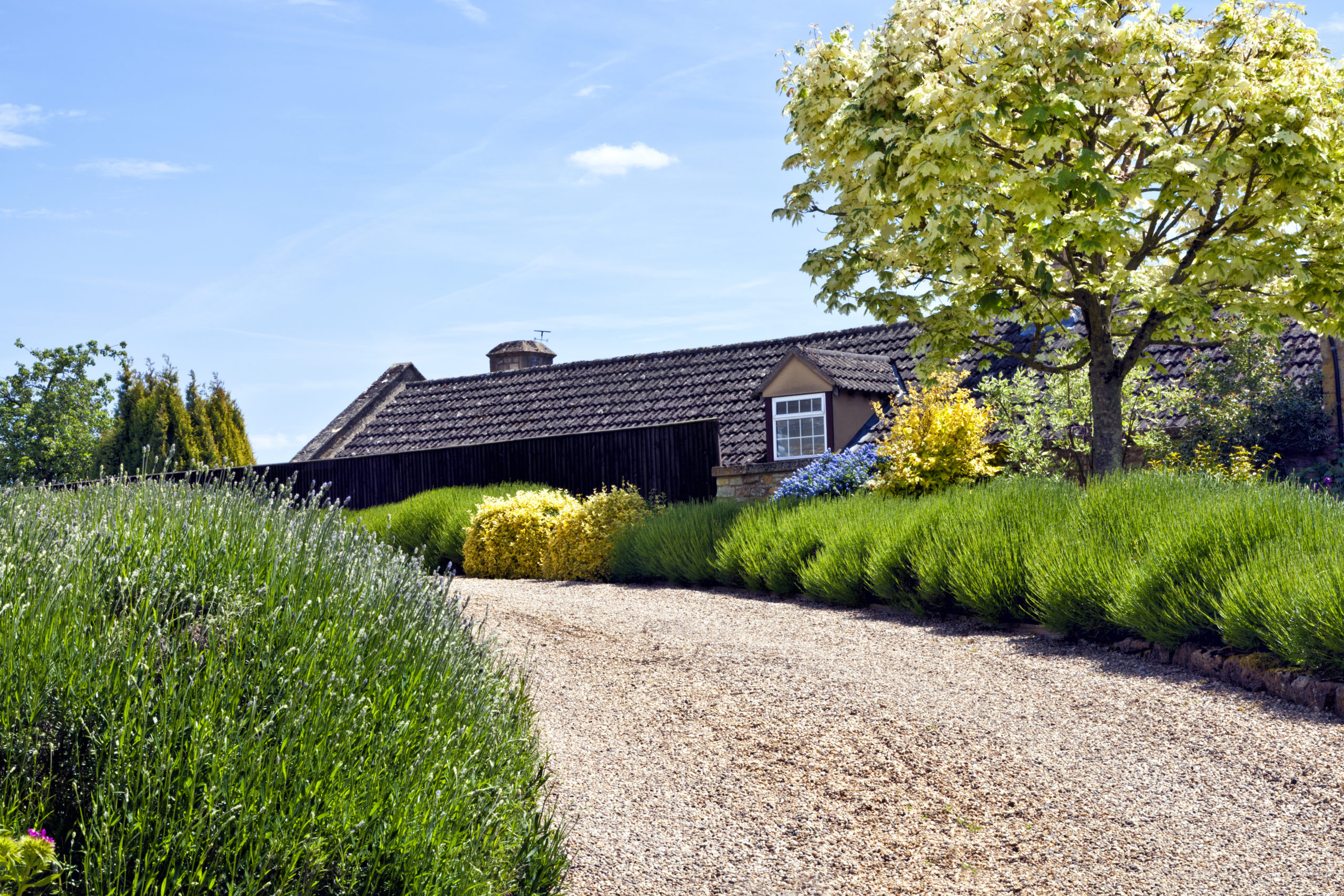
Choosing the right gravel for your driveway is an important, yet often overlooked task. While it may seem fairly straightforward, it’s imperative to do a bit of research before making a selection.
Let’s take a closer look at the different types of gravel, and which may be the best one for your driveway.
Why Choose a Gravel Driveway?
But first, what makes gravel a good driveway material in the first place? With other options, like concrete, out there, what makes it desirable?
Simply put, it’s the perfect choice for a person or business with a long driveway and a cost-conscious budget. It compacts well and sheds water easily, while also being relatively simple to maintain.
On top of that, there are plenty of different types of gravel to choose from, with different rocks, stones, colors, shapes, and performance capabilities. In fact, there are so many choices — all with their own strengths and weaknesses — that the decision can get a bit overwhelming. You want a driveway that looks as nice as possible, but also one that performs well and won’t wash or roll away before you can even start to enjoy it.
Gravel for Driveways: Which Is the Best Option?
Which leads us back to our original question: what really is the best gravel for a driveway? It depends on your unique wants and needs. We know that’s not the most straightforward answer, but it really can vary based on a few different factors, such as your land, your climate, your aesthetic preferences, and more.
But while we can’t quite make that decision for you, we can point you to some good options to start your search. Here are some of our favorites.
2 Main Categories of Gravel for Driveways
First thing’s first — there are two overarching categories of gravel that each type can be sorted into: crushed stone and naturally formed gravel. There are several differences between these two, though they’re easily distinguishable based on appearance.
- Crushed stone has a jagged edge due to the manual crushing process.
- Naturally formed gravel has a smoother look due to natural weathering over time.
4 Best Types of Gravel for Driveways
Within those two categories are many subtypes of gravel. Here are four that we’ve found to be the best types of gravel for driveways — along with some of their unique features, advantages, and disadvantages.
1. #3 Gravel
#3 gravel is a type of crushed stone, and it’s perfect for the base layer of a driveway. It’s made up of larger stone to create a solid base, and it encourages the draining process. It’s also one of the most affordable options.
Since #3 gravel works well as a base layer, it can be combined with other types of gravels to complete a more aesthetically pleasing look.
2. Crushed Stone #57
As the name suggests, this is a crushed stone. It’s a popular gravel for the middle layer of a driveway, but can complete a full driveway as well. It’s smaller than #3 gravel, it’s great for drainage, and the rocks don’t stick together the way some other gravel options do.
3. Pea Gravel
Pea gravel is a type of naturally formed gravel, measuring about ⅜ to ½ of an inch in size. It’s more aesthetically pleasing than most other gravels, and it’s a great choice for dressing up the top layer of a driveway. It also comes in many color options based on personal preference.
That said, pea gravel is a bit more expensive due to its visual appeal. In addition, due to its small size and inability to lock together like other gravels, it can migrate to other areas of the property over time after it’s been driven over. Proper upkeep is key with a pea gravel driveway.
4. Quarry Process (or Crusher Run
Quarry process is a type of crushed stone, measuring about a ¾ of an inch in size. It contains different rocks such as granite, limestone, trap rock, etc.
Quarry process can be used for driveways, but there are some things you should be aware of. It has more dust than other gravels, and as the dust settles between the rocks, it creates a smooth, solid surface. As a result, this type of gravel doesn’t drain as well as others if not installed properly. In order for it to not be washed away, it must be higher on the sides than in the middle, and must be put together by a skilled worker.
Keep Your Gravel Driveway Compact & Level with the Driveway Scraper
No matter what kind of gravel you choose, you’ll likely need a tool to level it. For that, choose our award-winning Driveway Scraper (DS). Our DS Series is available in three sizes and includes both rigid and flat modes for flat or contoured surfaces. Contact our team for more information.
The material and information contained on this website is for general information purposes only. You should not rely upon the material or information on the website as a basis for making business, legal or other decisions.
